#thomas Jefferson randolph
Explore tagged Tumblr posts
Text
tumblr fake posts but it's exclusively the US congress 1830s-50s. this will probably not make sense to anyone. it barely makes sense to me: [this is a long post. press j to skip]:
12 notes

forthurricane
guys help three senators from my party are outside my door and its a sunday and im scared i think they want something.
forthurricane
they want me to blackmail the president.
2 notes

henrywisingitup Follow
ohhhh goddddd ok so the coworker that called me a slur at work a few days ago IN PUBLIC just got a duel challenge from a friend of mine aslkdf. istg i hate him so much he's so annoying and he needs to resign or kill himself immediately. i hope he accepts the challenge fucking dies or gets shot up. good RIDDENCE fucking turd pile of trash empty bladder dung beetle puppy bastard LIAR. welliamgravely Follow
what'd he call you?
henrywisingitup Follow
an aboliti*nist.
congressionalglobe
Congblr Heritage Post. #congblr heritage post #senblr heritage post #houseblr heritage post #lmao remember when abolitionist was a slur guys #thank u pierceuinfiftytwo #i hate this post #and i think u do too #mod greeley
346,356 notes

Anonymous asked hi i'm sorry if i'm bothering you with this ask but i'm kinda new to this whole politics thing ( was just recently elected by my constituents so this is my first term ) and i would like to know how to get started on congblr? i've been recently appt to the house and i'd love to engage more with the community. do u have any blogs you'd suggest to me? bunnybrownfrench
hi anon!!!! i'm so glad you're here and in the house too ! ( it's where i am- frankly the Better House of Congress too while we're at it ). sadly i don't know what politics or party u have and i mostly scurry round the democrat side of the aisle more than anything, so i might not be able to help u that much, but i can try to give you some good ones!
@/gowestyoungman is a good source for news, and i'm personally a fan of @/mattbradydaggeurotype but @/geopeteralexhealy has some great portraits! obviously anyone has to follow @/oldhickory if they're a dem ( or even a whig ) they have great posts, lots of drama and thought provoking articles. a vv funny scroll. @/greatcompromiser is on the opposite side as a whig, but always sophisticated in their arguments, with nice shitposts in between to lighten the mood if you're uneasy about the american system.
@/jquincy and @/oldbullion are mostly serious blogs and if you're a westward expansion fellow, they're top blogs for u to follow. a bit hard at times, but personally i think they have great humor to make up for it ( unlike @/castironman though if you're here for what he posts all the more strength to u i suppose). @/redfoxkinderhook is also a good blog but they rarely post ( and never anything personal). @/godlikedan is my personal favorite blog. they have everything on there- drama, shitposts, detailed analysis, longposts, important info, aesthetics, etc.
for the rest tho anon, i'll leave it up to you! go out and explore! find the blogs u like; i wish u the best of luck!
15 notes

greatcompromiser hey guys, look at this BEAUTIFUL new commission i just got from @/mattbradydaggeurotype! it was wonderful to work with you, matt! <333

oldbullion
every day i wake up.
#body horror
555 notes

gallerywatcher Follow
why he kinda......

robrhett Follow
this bitch thirsting over baldy mcuseless LMAO
gallerywatcher Follow
hearing strong words from a guy whos blog is devoted to john c calhoun
244 notes

jrandolphofroanoke
i have herpes. greatcompromiser
yeah? and????? we know.
jrandolphofroanoke
IN MY EYES. IN MY EYES.
135 notes

bunnybrownfrench asked: orgies in hell over secession!! dailyaskstotheussenate
i forgot i asked for poem recommendations for a moment.
0 notes
#ask #bunnybrownfrench

castironman follow It is with great misfortune that I continue the discourse of the past week, but due to recent actions by certain other accounts, I have to re-engage with this conflict. Again, I would like to say that I stand firm in by belief that the 2BUS should not be re-instated, and that I resent the idea that I have somehow 'flip-flopped' or 'betrayed' my past ideals or other people in regards to what I believe to only be my own rational decisions, all logical as I will prove. read more
greatcompromiser
oh you've got to be kidding me.
read more
#fucking fuck offfff JOHN #dumbass ungrateful bitch #subtreasury discource #castironman #i shouldve let oldhickory hang you
54,233 notes

theliberator
Hello, all. The Liberator is proud to announce a new mod today to assist in spreading the antislavery message. Presenting: @/frederickdouglass! We're very glad to have a new member to the abolitionist movement, and even more so to have a new mod with us today! We're sure they'll do great work, and we hope you share our excitement as well!
-Mod Garrison and The Liberator Team
theliberator
Hello, all. Disregard this post, since we cannot delete it. Frederick Douglass has been removed from the mod team.
#info #state of the blog #mod update #mod garrison
44 notes

dailyaskstotheussenate
to the anon who asked us when the gag rule is going to be repealed.
the day that john quincy adams finally snaps and decides to murder the rest of his colleagues on the floor.
or never.
#misc
234 notes

thenorthstar
Hello all, Frederick Douglass here. As you might be aware by now, The Liberator and I have since parted. The reason for this is due to several irreconcilable differences, some political, some personal. The drama has since cooled down, but due to the blowout from our conflict, William Lloyd Garrison and I have agreed to since part ways. I am currently running @/thenorthstar on multiple platforms available in my bio.
Garrison and I are still part of the abolitionist movement together, so if you're worried about the harm this might cause to our end goal of emancipation for enslaved people in the United States and the complete destruction of the slave system as it stands today, do not worry. I will be reposting a catalogue of my speeches and writings here that were originally in The Liberator- which you may feel free to mute as you wish. My advocacy for human rights will proceed as normal.
Please do not contact me to ask about just what occurred between The Liberator and I, however, as that is something that I both do not want to discuss, and feel it is unnecessary considering this blog's true content matter.
#info #blog #the liberator #please direct any and all comments about wlg to mr smith from now on
245,234 notes

higherlawseward Follow
Let's settle this once and for all.
littlegiantofillinois
/lmao.
#bro's getting ratioed so hard i almost cant watch. #SEWARD #delete this sewage boy

brecknridge Follow
fellas is it gay to bring a flower to your senate colleague as your first act in congress to express your admiration for him (also from your state)( literally the most famous senator of your era)(you plucked this flower straight from your home state and tenderly carried it all the way to washington dc to hand to him)(kinda cute too)(this is the first time you've met him)(whig party, you're a democrat)(70 yrs old)???
brecknridge Follow
fellas is it gay to bring a flower to your senate colleague who's dying in a washington dc hotel room and sit by him for hours on end talking about politics and personal life before he finally expires his last breath and you tenderly are the last person to gently readjust his pillow as he falls asleep in your arms...
oldbuck Follow
No.
brecknridge Follow
oh ok
43 notes

godlikedan

A gift from a friend. ;) ;) ;)
godlikedan
Wait.
godlikedan
Everyone stop reblogging this. This was supposed to go to my other blog.
godlikedan
PLEASE.
#lmao get wrecked. #always knew you had a porn blog danny
12,000 notes

oldbullion
real talk everyone in this senate needs to stop having drama.
#@/castironman @/greatcompromiser... looking at you both #stop it
133 notes

roberthayne
menstruation sounds so cool....but why doesnt it ever happen to men???
godlikedan
remind me how you got elected again.
76 notes

oldbullion
going to @/oldhickory's inaugeral party. I expect a solemn affair.
oldbullion
F U CK they broug ht t cheeessseeee....
12 notes

jgiddyings
back to work in the senate :D~~~!
dawson Follow
tf i thought we censured you??
jgiddyings
i got reelected :) :) :)!~
#take that mofos #no blocking or muting can remove me NOW #suck my dick
65 notes

memberofthehouse
OH MY GOD I HATE this house chamber so much the acoustics are horrible and its so crowded istg I am blaming Thomas Jefferson for all of this. the room was clearly already too crowded in the 1790s and then the louisiana purchase just comes by and Fucks! Shit! UP???? by doubling the amount of people who have to be stuffed in here??? and everyone keeps on smoking and spitting tobacco everywhere and its too hot??? i think the lead is killing me. i think the air is killing me. i think my colleagues are going to kill me. I DEFINATLY THINK HENRY WISE AND HIS COMPANY IS TRYING TO KILL ME???
Kill me.
henrywisingitup
get used to it buddy.
rogertaney
we're making court decisions in the goddarn congress basement if that helps.
346 notes

littlegiantofillinois
so horny for her

77 notes

chucksumner
just saw william seward and jefferson davis taking a carriage together. i don't get it. am i the only one who thinks that as antislavery advocates we in the senate Shouldn't be playing nice with slaveholders??
28 notes

forthurricane Follow
breakfast is very fufilling i say as a person who's morning meal consists entirely of a carton of milk and one (1) expired bread loaf garrison Follow
everyone please stop reblogging op is literally jefferson davis.
#dni
52,346 notes

goldtippedguttapercha-deactiv
Not to be mean but this coworker of mine needs to get caned. 23,233 notes

senatorero hangman foote threatened to kill me again today. can someone please tell me if this means im part of the antislavery club.
vivelasboston Follow
are you a republican? because otherwise i think it's appropriation.
senatorero
oh for christs sake
#personal 4 notes

littlegiantofillinois
such a cruel world... so many good laps to sit on and no one to let me do so.
#SO MANY SOFT LONG CONGRESSIONAL LEGGGGS #THEY ALL LOOK SO COMFFYYYYY #ah well #no comfort or joy in life i suppose #time to bully president pierce into expanding popular sovreignty into kansas nebraska!!! :)))))) #this won't cause any issues
33 notes

#the congressional incubator#stephen douglas#william seward#jefferson davis#thomas benton#henry clay#john randolph#john c calhoun#daniel webster#william lloyd garrison#henry wise#frederick douglass#john parker hale
43 notes
·
View notes
Text

Baby republicans
#amrev#amrev fandom#thomas jefferson#james madison#james monroe#albert gallatin#aaron burr#robert r. livingston#edmund randolph#philip freneau#democratic republicans
218 notes
·
View notes
Text

The Saturday Evening Post 1902-02-15
Cover art by George Gibbs
#The Saturday Evening Post#vintage magazine#magazine cover#magazine#vintage magazine cover#vintage#early 20th century#20th century#1900s#1902#February#Presidents' Day#Presidents Day#George Washington#Thomas Jefferson#Alexander Hamilton#Henry Knox#Edmund Randolph#government#US Government#18th century#1700s#George Gibbs#internet archive
5 notes
·
View notes
Text
"As a teenager living in Paris with her father, who was then serving as the U.S. Minister to France, [Martha Jefferson] attended school at a nearby convent and socialized in the highest circles of European society. Known even then for her brilliance, Martha found many admirers and friends, among them the Marquis de Lafayette, whose grand gesture toward her during a parade not long after the storming of the Bastille became the stuff of family legend."
#thomas jefferson#american revolution#martha jefferson randolph#french revolution#marquis de lafayette#I thought this was a neat story and taught me some things i didn't know about jefferson's eldest daughter
1 note
·
View note
Text
Who is the worst founding father? Round 4: Thomas Jefferson vs John Jay vs Edmund Randolph

Thomas Jefferson (April 13, 1743 – July 4, 1826) was an American statesman, diplomat, lawyer, architect, philosopher, and Founding Father who served as the third president of the United States from 1801 to 1809. Jefferson was the primary author of the Declaration of Independence. Following the American Revolutionary War and prior to becoming the nation’s third president in 1801, Jefferson was the first United States secretary of state under George Washington and then the nation’s second vice president under John Adams.
Starting in 1803, he promoted a western expansionist policy with the Louisiana Purchase and began the process of Indian tribal removal from the newly acquired territory.
In confidential talks with French consul Joseph Létombe, Jefferson attacked President John Adams and predicted [he] would serve only one term, encouraged France to invade England, and advised Létombe to stall any American envoys sent to Paris by instructing him to “listen to them and then drag out the negotiations at length and mollify them by the urbanity of the proceedings." This toughened the tone that the French government adopted toward the Adams administration.
Jefferson lived in a planter economy largely dependent upon slavery, and used slave labor for his household, plantation, and workshops. Over his lifetime he owned about 600 slaves.
During his presidency, Jefferson allowed the diffusion of slavery into the Louisiana Territory hoping to prevent slave uprisings in Virginia and to prevent South Carolina secession. In 1804, in a compromise on the slavery issue, Jefferson and Congress banned domestic slave trafficking for one year into the Louisiana Territory.
In 1819, Jefferson strongly opposed a Missouri statehood application amendment that banned domestic slave importation and freed slaves at the age of 25 on grounds it would destroy the union.
Jefferson never freed most of his slaves, and he remained silent on the issue while he was president.
Since the 1790s, Jefferson was rumored to have had children by his sister-in-law and slave Sally Hemings, known as the Jefferson-Hemings controversy. According to scholarly consensus…as well as oral history, Jefferson probably fathered at least six children with Hemings.
---
John Jay (December 12, 1745 – May 17, 1829) was an American statesman, patriot, diplomat, abolitionist, signatory of the Treaty of Paris, and a Founding Father of the United States. He served as the second governor of New York and the first chief justice of the United States. He directed U.S. foreign policy for much of the 1780s and was an important leader of the Federalist Party after the ratification of the United States Constitution in 1788.
Jay served as the governor of New York from 1795 to 1801. Although he successfully passed gradual emancipation legislation as governor of the state, he owned five slaves as late as 1800. In the waning days of President John Adams’ administration, Jay was confirmed by the Senate for another term as chief justice, but he declined the position and retired to his farm in Westchester County, New York.
John Jay himself purchased, owned, rented out and manumitted at least 17 slaves during his lifetime. He is not known to have owned or invested in any slave ships. In 1783, one of Jay’s slaves, a woman named Abigail, attempted to escape in Paris, but was found, imprisoned, and died soon after the illness. Jay was irritated by her escape attempt, suggesting that she be left in prison for some time. To his biographer Walter Stahr, this reaction indicates that “however much [Jay] disliked slavery in the abstract, he could not understand why one of his slaves would run away.”
---
Edmund Jennings Randolph (August 10, 1753 – September 12, 1813) was a Founding Father of the United States, attorney, and the 7th Governor of Virginia. As a delegate from Virginia, he attended the Constitutional Convention and helped to create the national constitution while serving on its Committee of Detail. He was appointed the first United States Attorney General by George Washington and subsequently served as the second Secretary of State during the Washington administration.
A scandal involving an intercepted French message led to Randolph’s resignation as Secretary of State in August 1795. Randolph had been tasked with maintaining friendly relations with France. The British Navy had intercepted correspondence from the French minister Joseph Fauchet to his superiors and turned it over to Washington, who was dismayed that the letters reflected contempt for the United States and that Randolph had been primarily responsible. The letters implied that Randolph had exposed the inner debates in the cabinet to France and had told it that the administration was hostile to the country. At the very least, Elkins and McKitrick conclude, there “was something here profoundly disreputable to the government’s good faith and character.”
While residing in Pennsylvania, the 6-month residency deadline for [his slaves] approached. Attorney General Edmund Randolph’s slaves had obtained their freedom under the 1780 law, and Randolph was advising Washington (through Lear’s letters) on how to prevent the eight [slaves] from similarly obtaining theirs.
#founding father bracket#worst founding father#founding fathers#amrev#brackets#polls#thomas jefferson#john jay#edmund randolph
22 notes
·
View notes
Text
Oscars 2024 - Winners!
Here are the winners at the 96th Academy Awards: Hollywood, CA – March 10: Chirstopher Nolan and Steven Spielberg during the live telecast of the 96th Annual Academy Awards in Dolby Theatre at Hollywood & Highland Center in Hollywood, CA, Sunday, March 10, 2024. (Myung J. Chun / Los Angeles Times) Best PictureOppenheimerEmma Thomas, Charles Roven and Christopher Nolan, Producers Continue…

View On WordPress
#20 Days in Mariupol#American Fiction#Anatomy of a Fall#Arthur Harari#Barbie#Ben Proudfoot#Best Picture Project#Billie Eilish#Brad Booker#Charles Roven#Christopher Nolan#Cillian Murphy#Cord Jefferson#Da&039;Vine Joy Randolph#Dave Mullins#Emma Stone#Emma Thomas#Finneas O&039;Connell#Godzilla Minus One#Hayao Miyazaki#Holly Waddington#Hoyte van Hoytema#Jennifer Lame#Johnnie Burn#Justine Triet#Kiyoko Shibuya#Kris Bowers#Ludwig Goransson#Masaki Takahashi#Michelle Mizner
4 notes
·
View notes
Text
* The Legacy of a Typo: A Meditation on Tomato Gravy
Farm stand with fresh tomatoes (Photo credit: C. Bertelsen) Stirring the flour into bacon drippings, creating a blond roux, and saut��ing finely chopped yellow onions in the mixture turned out to be quite an adventure. No, I didn’t burn myself – for once – on the lethal combination of hot fat and flour. No, in the seemingly simple and slow act of making tomato gravy, to serve over biscuits or…
#Colin Spencer#Cuisine of the Southern United States#Kate Burridge#Mary Randolph#Southern cooking#The Virginia House-wife#Thomas Jefferson#Tomatoes
0 notes
Text
Why America never got the metric system
Unlike the European metric system, the Anglo-American system of measurement, also known as the imperial system, has no reference to the decimal system. The measurements are therefore not based on each other as decimals. And anyone who is not used to this system simply finds it hell.

So it is no wonder that in the 18th century, the idea of a group of French philosophers to introduce a standardised, simple and precise system of measurement fell on receptive ears. The metric system they proposed avoided the inaccuracies and problems caused by merchants buying in one unit but selling their goods in another. Scientific measurements could be made more precise and the international exchange of knowledge simplified.
But why didn't the system become established throughout the world? According to "legend", pirates or to be more accurate privateers thwarted its introduction in the United States of America.
In 1793, the scientist and aristocrat Joseph Dombey was sent from France to talk to the then US Secretary of State, Thomas Jefferson, on the other side of the Atlantic. In his luggage he had a rod that measured exactly one metre and a copper cylinder called grave that weighed exactly one kilogram. Jefferson had previously spent time in Europe as a diplomat and was open to the ideas of the Enlightenment and the metric system. There was therefore justified hope that he would convince Congress to adopt the new system.
However, Dombey was blown off course by a storm during his crossing. His ship was driven into the Caribbean and fell into the clutches of British privateers. They captured Dombey and destroyed his equipment or sold it. The unlucky botanist died a short time later.

The grave of 1793, an early version of the kilogram. It’s possible this object, now owned by the NIST museum, was once pirate treasure.
France sent a second envoy on his way. He reached the USA in good health. But in the meantime, Jefferson was no longer Secretary of State. The future US president had a crisis of purpose at that very time. After exhausting disputes, he had withdrawn from politics.
His successor in office, Edmund Randolph, had little interest in the idea of turning existing norms in the USA upside down. And while many countries in the rest of the world introduced the metric system, the Americans still use the confusing imperial system to this day, even though the metric system has also been accepted there.
The Metric System, by Jennifer Fandel
The Metric System: America Measures Up, by Glen Anderson, Paul Gallagher
https://www.washingtonpost.com/news/speaking-of-science/wp/2017/09/19/pirates-yes-pirates-may-be-why-the-u-s-doesnt-use-the-metric-system/
116 notes
·
View notes
Text
BEYOND MONTICELLO - CHAPTER ONE
| A Thomas Jefferson x Reader fanfic |

The air was warm, carrying the faint, earthy scent of fresh soil and tobacco, as cheers rippled across Norfolk’s crowded streets. People from all walks of life had gathered, eager to welcome Mr. Thomas Jefferson home at last. After years away serving as the U.S. minister to France, he had finally returned to Virginia.
Thomas barely heard the applause or the calls of his name. His attention was elsewhere, scanning the sea of faces, searching for someone familiar. The celebration was for him, but he had little patience for the ceremony. Finally, his eyes landed on the man he’d been hoping to see: James Madison, standing near the dock with his usual calm, almost unreadable expression.
Thomas’s face broke into a broad smile as he strode forward, clasping James’s shoulders with both hands. “James, my friend! It’s been far too long. How’s Dolly? And you—are you well?”
James returned the handshake, his lips curving into a faint but sincere smile. “We’re all doing just fine, Thomas. Now hurry—we need to leave if we want to reach Mr. Washington’s estate in Philadelphia before nightfall.”
Thomas hesitated, his smile dimming just slightly. He respected George Washington deeply, even admired him in many ways, but there was a shadow of reluctance in his thoughts. The General’s circle had grown considerably in recent years, and one man in particular—a brash, ambitious immigrant—had become both prominent and divisive. The thought of meeting him face-to-face unsettled Thomas more than he cared to admit. Still, he pushed the unease aside and followed James to the waiting carriage.
_____________________________________
Philadelphia – Washington’s Estate
The hum of conversation filled the room, blending with the clink of dishes and the soft crackle of the fire. Y/N L/N balanced a tray of steaming tea with practiced ease as she weaved through the room. Her uncle, George Washington, sat at the head of the room, his presence as commanding here as it was on the battlefield. Nearby, Alexander Hamilton paced by the fireplace, gesturing emphatically as he launched into yet another tirade, while Edmund Randolph and Henry Knox chatted in low voices by the window.
“Honestly, Mr. President,” Alexander huffed, throwing up his hands for emphasis, “it’s intolerable! John Adams absent again. Does he even know what a cabinet meeting is?”
George raised an eyebrow but remained silent, sipping his tea as if to signal he was immune to Alexander’s dramatics. Y/N smiled to herself as she reached her uncle’s side, setting the fresh tray in front of him. “More tea, Uncle George?” she asked softly.
“Thank you, my dear,” he replied, his tone warm despite the faint exhaustion in his eyes.
Alexander turned sharply, his attention snapping to Y/N as if she’d addressed him. “Miss L/N,” he said, gesturing broadly with his teacup, “do you see what we’re up against? A Vice President who’s practically invisible! A man who, by all appearances, feels above the call of duty.”
Y/N carefully handed him a cup, schooling her face into polite neutrality. “I imagine you’ve expressed your feelings on the matter, Mr. Hamilton.”
“Frequently and with great flair,” he shot back, taking a sip.
Y/N straightened, glancing toward her uncle. “Do you know when Mr. Madison and Mr. Jefferson are supposed to arrive?”
“They’re already on their way,” George said, setting his cup down. “If James’s punctuality holds, they should be here by evening.”
“Thomas Jefferson,” Alexander muttered darkly, his tone thick with disdain. He slammed his teacup onto the saucer with unnecessary force. “Mark my words, Miss L/N: he’ll charm everyone in the room while opposing every sensible policy this administration has built.”
Y/N tilted her head, the corner of her mouth curving slightly. “A man with such a reputation sounds fascinating. I look forward to meeting him.”
Alexander opened his mouth, no doubt ready with a retort, but George’s firm voice cut through the air before he could speak. “Enough, Alexander. You’d do well to save your energy for the meeting.”
Y/N stifled a laugh, moving to refill cups for Edmund and Henry. The late afternoon sun spilled through the tall windows, casting long golden shadows across the room. As she glanced outside, a carriage pulled into view, kicking up a trail of dust. The other cabinet members have arrived.
_____________________________________
The hours dragged on, the heated back-and-forth between Thomas Jefferson and Alexander Hamilton showing no sign of slowing. The rest of the cabinet had long since grown tired of the debate. Henry Knox sat with his arms crossed, stifling a yawn. Edmund Randolph absently traced patterns on the table with his finger. James Madison looked like he was calculating how long he could keep pinching the bridge of his nose before it became permanent.
George Washington, seated at the head of the room, glanced at his niece, Y/N. She was still diligently scribbling notes, though her pen moved slower now, her focus waning under the weight of exhaustion. George sighed, rubbing his temple as he addressed her.
“My dear,” he said gently, though his voice carried over the noise, “you should retire for the evening. Your aunt has already gone to bed. A lady shouldn’t have to endure this nonsense any longer than necessary.”
Y/N set her pen down and looked up, a faint smile gracing her lips though there was a hint of exasperation in her eyes. “I’m fine, Uncle. Someone has to record this… productive discussion,” she said, her tone light but laced with irony. “And besides, if things get out of hand, I’m probably the fastest to run for help.”
Knox chuckled at that, but George remained unimpressed. “Regardless, you’ve done enough. Off you go now.”
Y/N hesitated, glancing between her uncle and the still-arguing Jefferson and Hamilton, before deciding not to push further. “Goodnight, Uncle. Gentlemen.” She nodded politely to the room as she left.
The door had barely clicked shut behind her when Alexander’s voice rose again. “Mr. Jefferson, if you think this country can thrive on dreams and farming alone—”
“And if you think banks and tariffs will feed the people, Mr. Hamilton,” Thomas interrupted coolly, “then it’s no wonder you see this nation as little more than your personal ledger.”
“Enough!” George’s voice cut through the room like a whip, the sheer force of it silencing everyone. He rose to his feet, his gaze sharp as he looked between the two men. “This meeting is over. We’ll reconvene tomorrow when everyone’s heads are clearer.”
Knox and Randolph didn’t need to be told twice. They stood immediately, murmuring polite goodnights as they made for the door. Madison followed close behind, pausing only to give George a slight bow before disappearing into the hall.
Hamilton lingered, his jaw tight as though he was biting back another retort, but under George’s unrelenting stare, he eventually muttered, “Goodnight, Mr. President,” and left.
George turned his attention to Thomas, who remained seated, rubbing at his temples. “Mr. Jefferson,” George said, his tone softening just slightly, “you’re welcome to stay here tonight. You live farther than the rest, and it’s too dark to travel safely.”
Thomas hesitated, glancing toward the emptying room. “I appreciate the offer,” he said finally, his voice subdued. “Thank you, Mr. President.”
As the others filed out, Thomas pushed himself to his feet. He moved slowly, fatigue etched into every line of his face. His gaze drifted toward Y/N’s empty chair, and something in him stirred—a flicker of curiosity, perhaps more. He hadn’t properly acknowledged her during the meeting, but now her absence left the room feeling oddly incomplete.
His thoughts were interrupted when George cleared his throat. Thomas straightened, nodding to the President before heading toward the stairs. But as he passed the hall leading to the kitchen, he stopped. Y/N was there, speaking softly with one of the housemaids as she helped clear away the tea service.
He stepped closer, feeling his exhaustion more keenly now but unwilling to let the night end without a word. “Miss L/N,” he said, his voice low but steady.
Y/N turned, startled at first but quickly recovering. “Mr. Jefferson,” she replied with a polite nod. “You’ve had a long day. I didn’t expect you to still be awake.”
Thomas managed a faint smile, though his usual charm was muted by weariness. “It seems I’ll be staying here tonight. I thought it only proper to introduce myself before retiring.”
Her brow arched slightly, a small, amused smile tugging at her lips. “Well, I appreciate your sense of propriety. It’s a pleasure to meet you, Mr. Jefferson.”
“The pleasure is mine, Miss L/N,” he said, though his voice carried more sincerity than flair. For a moment, he considered saying more—something clever, something to match the sharpness in her eyes—but the weight of the day pressed too heavily on him.
Instead, he inclined his head. “Goodnight, Miss L/N.”
“Goodnight, Mr. Jefferson,” she said, watching as he turned and disappeared down the hall.
In the quiet of the guest room, Thomas loosened his cravat and sank onto the edge of the bed with a sigh. He couldn’t deny the intrigue she stirred in him—a woman who seemed as sharp as she was composed. But for now, his thoughts faded, overtaken by exhaustion. He let his head fall back against the pillows, the noise of the evening giving way to silence as sleep claimed him.
Authors note - Please tell me what to fix if I need so, Ive written before but never posted.
#thomas jefferson#hamilton musical#historical#first post#thomas jefferson x reader#george washington#y/n#idk what to tag help
28 notes
·
View notes
Photo
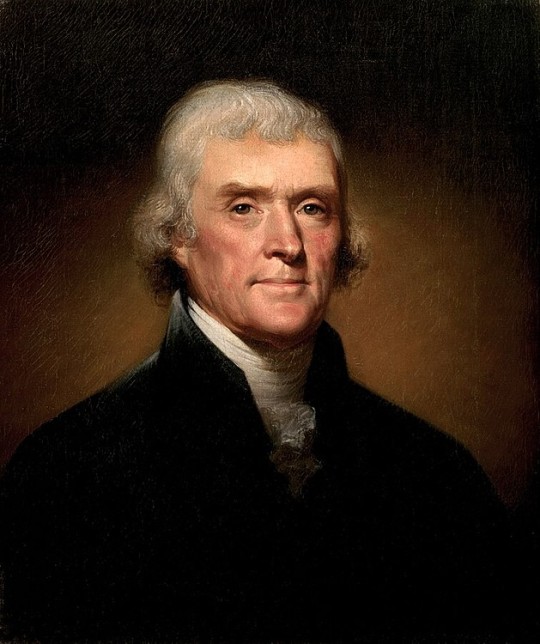
Thomas Jefferson
Thomas Jefferson (1743-1826) was an American lawyer, statesman, philosopher, and a Founding Father of the United States. A prominent figure of the American Revolution, he wrote the Declaration of Independence and later served as the first secretary of state, the second vice president, and the third president of the United States (served 1801-1809).
Early Life
Thomas Jefferson was born on 13 April 1743 at Shadwell Plantation in Albemarle County, Virginia. He was the third of ten children born to Peter Jefferson, a wealthy planter and land surveyor, and Jane Randolph Jefferson, a daughter of one of Virginia's most influential families. When Peter Jefferson died in 1757, 14-year-old Thomas inherited 5,000 acres of land as well as 60 enslaved people. From 1758 to 1760, he was privately tutored by Reverend James Maury before going on to the colonial capital of Williamsburg to attend the College of William & Mary. In his first year at college, he spent lavishly on parties, horses, and clothing, but he would soon regret this "showy style of living" (Boles, 18). His second year, therefore, was much more studious; he would apparently spend 15 hours a day at his studies, pausing only to exercise or to practice his violin.
The studious Jefferson soon became the protégé of mathematics professor William Small, who he would fondly remember as "the first truly enlightened or scientific man" he had ever met (Boles, 17). Small introduced Jefferson to the two other great intellectuals in Williamsburg – law professor George Wythe and Lt. Governor Francis Fauquier – and, at their weekly dinner parties, the four men would discuss politics and philosophy, greatly influencing the young Jefferson's political and intellectual development.
After completing his formal studies in 1762, Jefferson remained in Williamsburg to study law under Wythe and was admitted to the Virginia bar five years later in 1767. In 1768, he was elected to the House of Burgesses, representing Albemarle County. That same year, he began construction of a new home atop an 868-foot-high (265 m) mountain that overlooked his plantation. Called Monticello – Italian for "little mountain" – the house became the passion of Jefferson's life, and he would spend the next several decades designing and renovating it. The actual labor, of course, was mostly performed by his slaves; over the course of his lifetime, Jefferson owned approximately 600 enslaved people, most of whom were born into slavery on his property.
In 1772, after several failed romantic pursuits, Jefferson was finally married to the beautiful young widow Martha Wayles Skelton. Five years his junior, Martha shared his passions for literature and music; indeed, they often played music together – she on the harpsichord, he on the violin. The couple would have six children, only two of whom – Martha 'Patsy' (1772-1836) and Mary 'Polly' (1778-1804) – would survive to adulthood. When Jefferson's father-in-law died in 1773, he and Martha inherited 11,000 acres of land and 135 more enslaved people. By then, Jefferson had become involved with Virginia's struggle against Great Britain. Parliament's attempts to tax the colonists without their consent were vehemently opposed by the American Patriots, who saw such taxes as violations of their 'rights as Englishmen'. In 1774, Jefferson argued as much in his A Summary View of the Rights of British America. In it, he asserted that the colonies had the right to govern themselves, that they were tied to the English king only through voluntary bonds and that Parliament had no right to interfere in their affairs. This work earned him recognition as a Patriot leader in Virginia and led to his appointment as a delegate to the Second Continental Congress in Philadelphia in the spring of 1775.
Continue reading...
23 notes
·
View notes
Text
connection between wartime administration & federalist-lean?
There's an argument that wartime service and experiencing Congress' failures firsthand as Washington's aide de camp pushed Hamilton further into the ideals that would later be seen as Federalist: a national instead of state outlook, a permanent military power, and a strong, efficient government.
I was wondering if that argument can be applied on a broader scale: is there an overall connection between revolutionary wartime administration and federalist-leaning political beliefs?
I'm by no means qualified but for my own curiosity's sake, I tried to find the political inclinations of former leaders in the war as well as members of Washington's family, who arguably should have seen the same inefficiencies as Hamilton.
Major Generals:
Washington: Tried very hard to be nonpartisan, but pretty federalist when all's said and done. Especially in 2nd term as president and in last years of life Horatio Gates: Supported Jefferson's presidency, so assuming he was leaning Democratic-Republican? Henry Knox: Federalist Philip Schuyler: Federalist William Alexander, Lord Stirling: Not sure John Sullivan: Federalist, led drive in New Hampshire for Constitution's ratification Thomas Mifflin: Federalist according to Wikipedia (was also aide to GW from June to August 1775) Arthur St. Clair: Federalist. Governor of Northwest Territory, removed by Jefferson in 1802 due to political party differences. Benjamin Lincoln: Federalist, strong policies and presence in Massachusetts Thomas Conway: Unreliable source says Federalist William Moultrie: Some sites say Federalist but he had falling out with Washington because of his pro-French actions towards Genet. Possibly nonpartisan.
Washington's family (Aides, Culper, Life Guard. If they died before we can quantify as "Federalist", then not included):
Note: I tried to include length of service and timeline, arguably important (there during Valley Forge or good period?), but it's difficult in consideration of leave and such. Used Wikipedia's dates.
Edmund Randolph (August - November 75): Wiki says Federalist but I know enough about him that he was often the swinging vote in Washington's cabinet, and that he didn't sign the Constitution because he thought it too strong. Tench Tilghman (August 76 - June 80 | June 80 - Nov 83): Died in 1786. I shouldn't include him but raise a glass for our hardworking Tilghman. Robert Harrison (Nov 75 - May 76 | Military Sec May 76 - 81): Died in 1790. Wikipedia says Federalist. John Fitzgerald (Nov 76 - July 78): Couldn't find John Walker (Feb - March 77): Unreliable source says Federalist Samuel Blachley Webb (June 76 - Jan 77): Couldn't find William Grayson (Assistant Sec. July - August 76 | Aide August 76 - Jan 77): Leader of Anti-Federalist faction with Mason, Monroe, etc. died in 1790 Alexander Contee Hanson Sr. (Assistant Sec. June - Sep 76): Federalist according to Wiki Alexander Hamilton (March 77 - April 81): Is this even a question? Stephen Moylan (March 76 - June 76 | Sept. 76 - Jan 77): "Firm Federalist" according to Founders Online James McHenry (May 78 - August 80): Federalist, GW's Secretary of War in 2nd term when cabinet members were much more partisan. Richard Kidder Meade (March 77 - November 80): Couldn't find. I know that he was very close with Hamilton, which makes me think it possible that their politics had some similarities? But entirely speculation. Hodijah Baylies (May 82 - Dec 83): Federalist. According to Founders Online, Gallatin was advised against Baylies because he was a "decided and we believe a sentimental federalist”. David Cobb (June 81 - Jan 83 | June 83 - Dec 83): Wiki says Federalist Peregrine Fitzhugh (July 81 - Oct 81): Not sure if same Peregrine Fitzhugh, but in a letter to Jefferson in 1807, said: "It is true I have been called a Federalist, and feel a pride in being so: but my Federalism is firmed in those principles which dictated the correct and memorable declaration that we were all Federalists all republicans" William Stephens Smith (July 81 - June 82): Federalist (member of Congress as Federalist in 1812) David Humphreys (June 80 - Dec 83): Federalist. He was part of the Hartford Wits and wrote the poem The Anarchiad. "In 1802, Thomas Jefferson...decided to replace Humphreys...Historians speculate that Humphreys's closeness to the Federalist Party motivated Jefferson’s decisions." from Mt. Vernon Richard Varick (Aide & Priv Sec May 81 - Dec 83): Apparently Federalist and later mayor of New York Benjamin Walker (Jan 82 - Dec 83): Federalist, elected to Congress as Federalist
Caleb Gibbs (May 76 - Dec 80): Couldn't find Nathaniel Sackett: Couldn't find Benjamin Tallmadge (1778 - 1783): Federalist, part of minority in Congress during Jefferson & Madison administrations
Other aides who might've had administrative work, although I'm not sure:
Aaron Burr: Very short run with Washington, and Israel Putnam's aide. Technically Democratic-Republican, but some historians have noted his politics did not always align with a party.
James Monroe: Aide to Stirling, Republican-Democratic
Concerns:
First concern: I'm not sure if the other major generals' aides would see as much administrative work directly with Congress as Washington's aides. I'm under the impression that other generals would report to Washington, than Congress, but I'm not sure.
Second concern: I also want to add that other factors would have most definitely played a role, such as familial and economic interests, which may or may not have been influenced by the war. Still, I thought it would be an interesting exercise.
Third concern: A lot of this is very shallow research as I did not have the time or energy to really dig into all of them. Please let me know if there is any inaccurate information (even Federalist or Democratic Republican is a very broad term and I'm sure their beliefs varied).
Please let me know if you see any inaccurate information, or anyone/some branch I did not consider!
#alexander hamilton#george washington#aaron burr#the aides de camp#amrev#amrev fandom#revolutionary war
36 notes
·
View notes
Text

Isaac Granger Jefferson (1775-c. 1850) was an enslaved tinsmith and blacksmith at Monticello. His brief memoir, written down by an interviewer in 1847, provides important, fascinating information about Monticello and its people.1 Isaac was the third son of two very important members of the enslaved labor force at Monticello. His father, Great George Granger, rose from foreman of labor to become, in 1797, overseer of Monticello — the only enslaved individual to reach that position — and received an annual wage of £20. Isaac's mother, Ursula Granger, was a particularly trusted enslaved domestic servant whom Thomas Jefferson had purchased in 1773.2 Ursula was a pastry cook and laundress; her duties included the preservation of meat and bottling of cider.
Isaac Granger Jefferson
Isaac Granger, thus, spent his childhood on the mountaintop near his mother and from a very young age, he would have performed light chores in and around the house. He himself speaks of lighting fires, carrying fuel, and opening gates.3 Because he and his parents accompanied the Jefferson family to Williamsburg and Richmond when Jefferson was governor, the young Isaac was witness to dramatic events in the Revolution. In his reminiscences he recounted his vivid memories of 1781, including Benedict Arnold's raid on Richmond and the internment camp for captured slaves at Yorktown.4
Probably about 1790, Isaac Granger began his training in the metalworking trades. Jefferson took him to Philadelphia, where he was apprenticed for several years to a tinsmith. His own account is the only source of our knowledge of this aspect of his working life. He learned to make graters and pepper boxes and finally tin cups, four dozen a day. A tin shop was set up at Monticello on his return, but he recalled that it did not succeed. He also trained as a blacksmith under his older brother "Little George" and, sometime after 1794, became a nailer as well, dividing his time between nailmaking and smith's work.5
By 1796, Granger had a wife, Iris, and a son, Joyce. At this time he worked extra hours in the blacksmith shop, making chain traces for which Jefferson gave him threepence a pair. Also in 1796, according to Jefferson's records, Isaac Granger was the most efficient nailer. In the first three months of that year he made 507 pounds of nails in 47 days, wasting the least amount of nail rod in the process and earning for his master the highest daily return — the equivalent of eighty-five cents a day.6
In October 1797, Jefferson gave Isaac and Iris Granger, and their sons Squire and Joyce, to Maria and John Wayles Eppes as part of their marriage settlement.7 Thomas Mann Randolph was in need of a blacksmith at the time, so he hired Isaac from Eppes,8 though records are fragmentary and inconclusive on this point. Isaac and his family moved to Randolph's Edgehill plantation in 1798. A daughter, Maria, was apparently born soon after.9 As some of Granger's memories indicate his presence at Monticello in Jefferson's retirement years, he may have accompanied the Randolphs to reside there in 1809.
Tragedy stuck in 1799 and 1800, when Isaac's parents and brother Little George all died within a few months of each other. The persistence of an African heritage at Monticello is indicated by the fact that, in their illness, the members of this family consulted a black conjurer living near Randolph Jefferson in Buckingham County.10 Shortly after Great George Granger's death, Jefferson gave Isaac $11, the value of "his moiety of a colt left him by his father."11
In 1812 an Isaac belonging to Thomas Mann Randolph ran away and was caught and imprisoned in Bath County.12 We have as yet no way of knowing if this was Isaac the blacksmith. Randolph owned at least one other Isaac in this period.
How Isaac Granger gained his freedom is also unknown. He reported that he left Albemarle County about four years before Thomas Jefferson's death. He met and talked with the Marquis de Lafayette in Richmond in 1824. In 1847, he was a free man in Petersburg, still practicing his blacksmithing trade at the age of seventy-two.13 His reminiscences, taken down by the Reverend Charles Campbell in that year, do not reveal whether he took the surname Jefferson by choice or whether it was imposed on him by a white official, as was the case with Israel Gillette Jefferson, his fellow member of the enslaved community.
The fates of Iris, Squire, and Joyce Granger are unknown. Isaac had a wife, apparently not Iris, in 1847. Campbell wrote that Isaac Jefferson died "a few years after these his recollections were taken down. He bore a good character."14
91 notes
·
View notes
Text
The Feuding Presidents of Westmoreland County, Virginia

Of all the Founding Fathers, it would seem like George Washington and James Monroe would have been the closest comrades. The two men were born just miles apart from one another in Westmoreland County, Virginia. They both were large men physically, not known primarily for their intellect, but instead for their hard work, their courage, and their devotion to the Revolutionary cause. They were the two Presidents who saw the most action during the Revolutionary War and Monroe served bravely under Washington. To top it all off, Washington and Monroe kind of looked like each other, too.
On Christmas Day in 1776, Lieutenant James Monroe was one of those legendary soldiers who famously crossed the frigid Delaware River with General George Washington to engage the British at the Battle of Trenton. Monroe led a charge in that battle to help capture some cannons that were about to be fired upon the Americans and was wounded in the shoulder, a severe injury that would have resulted in him bleeding to death if it weren’t for the fortunate presence of a local doctor in New Jersey. Monroe’s heroism led to a promotion as Captain and he continued serving bravely during the war and was amongst those troops who survived the terrible winter of 1777-1778 at Valley Forge. It would seem as if none of the Presidents could have established more of a bond than the two Virginians who helped fight in the Revolution. Indeed, General Washington wrote that Monroe “has, in every instance, maintained the reputation of a brave, active, and sensible officer.”
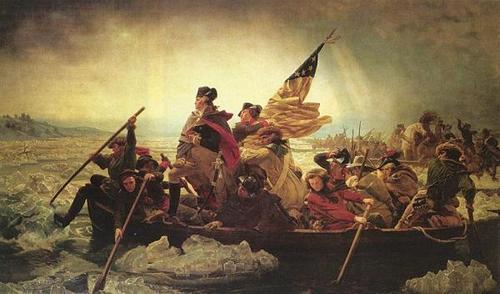
So why did they despise each other? And did James Monroe indirectly help kill George Washington? After the Revolution, Monroe entered politics and supported the national government being formed under George Washington despite the fact that Monroe had voted against the ratification of the Constitution in 1788. As one of Virginia’s first U.S. Senators, Monroe continued his support of Washington, who was now President, but began to fear that too much power was being placed in the hands of the chief executive and found himself opposing Washington’s Proclamation of Neutrality. When Washington appointed Monroe as Minister to France in 1794, something snapped. Monroe, like his friend and mentor Thomas Jefferson, loved France. He loved the country itself and, as an American Revolutionary, he found himself in love with the French Revolution. President Washington’s Proclamation of Neutrality insisted on American impartiality towards France and the countries that France was at war with at the time – Britain, The Netherlands, Austria, Prussia, and Sardinia. Monroe was vehemently opposed to neutrality because the French were the first and most important allies of the United States during the Revolution. Plus, James Monroe loved France. In fact, Monroe loved France so much that Secretary of State Edmund Randolph was forced to officially reprimand him due to his glowing compliments about France when Monroe presented his credentials in Paris. From there, things continued going downhill between Washington and Monroe. Monroe rescued Thomas Paine – another one of America’s early Revolutionaries — who had been thrown into prison in France for criticizing the execution of Louis XVI. Paine was very sick and believed to be close to death, so after securing his release, Monroe arranged for Paine to stay with him at the American Ministerial residence. Paine recovered and proceeded to brutally attack George Washington verbally for allowing him to rot in prison instead of rescuing him as Monroe did. President Washington felt Monroe should have muzzled Paine, or at least repudiated Paine’s disrespectful language towards Washington.
When the United States signed Jay’s Treaty with Great Britain, easing tensions between the U.S. and it’s former colonial power, Washington expected Monroe to be a good Federalist and support the rather unpopular treaty. Monroe opposed it and refused to speak out in support of the treaty. His silence on Jay’s Treaty was the last straw for Washington. The President was furious and noting that he expected a diplomat who would “promote, not thwart, the neutral policy of the Government” recalled Monroe as Minister and ordered him to return to the United States. When Monroe learned of his recall, he said that Washington was “insane”. Over the next few years, Monroe spent his time at home in Virginia and worked to undermine Washington and criticize the first President. Monroe questioned Washington’s capacity as a leader and felt that he had sold out the French, who had done so much to help the Americans during the Revolutionary War. Washington felt that Monroe was unqualified to critique his Presidency and that Monroe was a hopeless Francophile. In 1797, long before Monroe was considered to be Presidential timber, Washington cautioned, “If Mr. Monroe should ever fill the Chair of Government he may (and it is presumed he would be well enough disposed) let the French Minister frame his speeches”. Washington added, “There is abundant evidence of his being a mere tool in the hands of the French government.” Monroe wasn’t ready for the “Chair of Government” on a national level, but after Washington retired to Mount Vernon and handed the Presidency over to John Adams, Monroe decided to aim for the “Chair of Government” on a state level. In 1799, Monroe campaigned to become Governor of Virginia and as Monroe’s candidacy was promoted by his friends and supporters, 67-year-old George Washington maintained his estate in Virginia in retirement and tried to do whatever he could to prevent Monroe’s rise. If Monroe was going to be Governor of Washington’s beloved Virginia, then it would practically have to happen over Washington’s dead body. Washington wasn’t powerful enough to prevent Virginia’s state legislature from electing Monroe as Governor in December 1799, however. On a cold and snowy day, George Washington learned of his former lieutenant’s victory and took off on horseback to tend to Mount Vernon. When Washington returned to his home, cold and soaking wet, he got into an animated discussion with guests about Monroe’s victory and angrily denounced the newly elected Governor. Washington continued his discussions without removing his wet clothing. Already ill with a cold, Washington’s illness worsened. On December 14, 1799, George Washington said his last words, “Tis well” and died. Monroe continued his public service as Governor of Virginia, a special envoy to France to secure the Louisiana Purchase for Thomas Jefferson, Minister to Great Britain, Governor of Virginia once again, and Secretary of State and Secretary of War under his close friend James Madison. In 1817, it was finally Monroe’s turn to take the “Chair of Government” as Washington had so feared. Supported by Jefferson and Madison, Monroe easily defeated Rufus King and became President, kicking off “The Era of Good Feelings” where Monroe’s popularity was almost unparalleled by any other President and the nation was unified and free of almost any partisan bickering.
In 1820, Monroe ran for re-election and was so enormously popular that no one dared to run against him. In Massachusetts, 85-year-old John Adams -- a stalwart Federalist and George Washington's Vice President -- even supported Monroe. Yet Washington got the last laugh. Running unopposed, Monroe was not only certain of victory, but it looked like he would become the only President besides Washington be elected unanimously by the Electoral College. However, Governor William Plumer of New Hampshire decided to deny Monroe that honor and reserve it for Washington and Washington only. Some stories allege that Plumer did it solely to prevent Monroe from joining Washington as unanimous Electoral College victors and some stories note that Plumer truly disliked President Monroe and voted for John Quincy Adams as a protest. Either way, the records will always show that George Washington was the only President elected unanimously and I think it's pretty clear that Washington would have appreciated that Monroe of all people was prevented from joining him in that exclusive club.
#History#Presidents#George Washington#President Washington#General Washington#James Monroe#President Monroe#Death of George Washington#Virginia#Virginia Presidents#Westmoreland County#1820 Election#American Revolution#Revolutionary War#Crossing the Delaware#Washington Crossing the Delaware#Washington's Crossing of the Delaware#Battle of Trenton#Continental Army#Military History#Presidential Rivals#Politics#Presidential Politics#Presidential Relationships#Presidential Feuds#Federalist Party#Proclamation of Neutrality#France#French Revolution#Thomas Paine
37 notes
·
View notes
Text

This year the DC Power special, which arrives as we approach Black History Month, will not only kick off a new iteration of The Power Company, but will feature stories starring the new line-up for the team — who will go on to appear in a one-shot this April.
“Company Man” is a two-part prelude to April’s The Power Company: Recharged, by Black Lightning writer Brandon Thomas with art by Charles Stewart III, Anthony Fowler Jr., and Ulises Arreola. If you’ve been reading Thomas’ excellent Black Lightning series, you’ve seen Josiah Power, the founder of The Power Company, in his reintroduction to the DC Universe. Things aren’t going well for him:
As Power grieves over the death of his nephew Daniel due to the actions of Amanda Waller, and as his own energy-manipulating powers are growing out of control, he quickly realizes that a new iteration of the Power Company may be the only solution to the problem of growing anti-meta sentiment, and Jefferson Pierce, a.k.a. Black Lightning, is the key.
Read more
cover by Khary Randolph and Emilio Lopez
#comics#comic books#dc#dc comics#the power company#dc power#khary randolph#emilio lopez#dc power: rise of the power company#josiah power#black history month#brandon thomas#anthony fowler jr.#charles stewart iii#ulises arreola
3 notes
·
View notes
Text



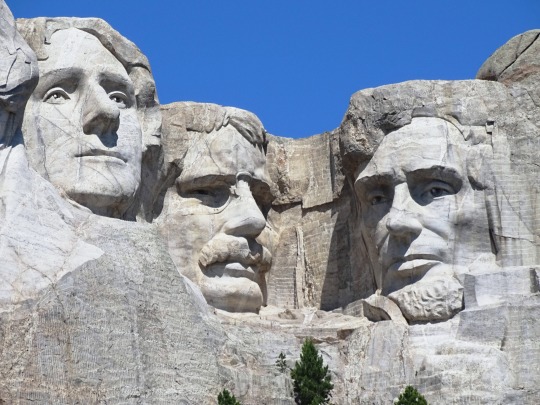
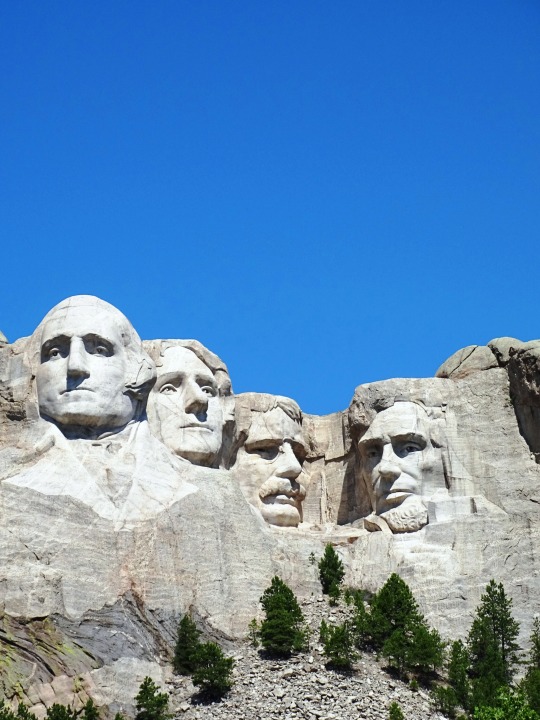

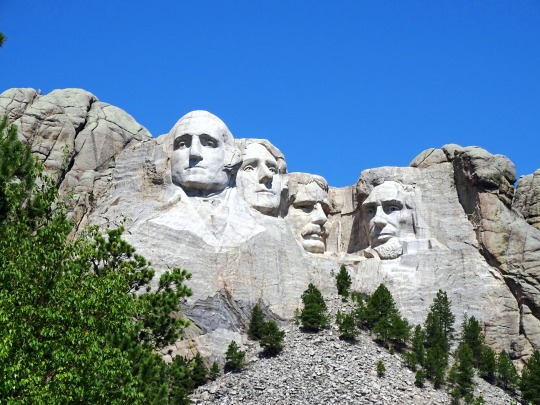

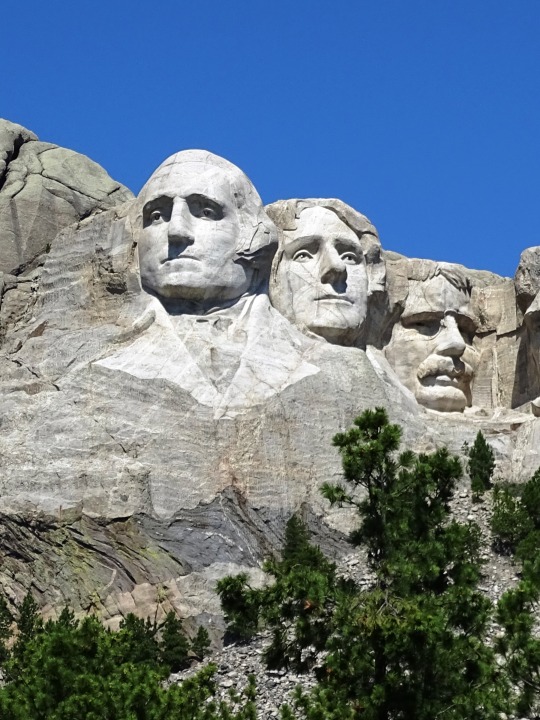


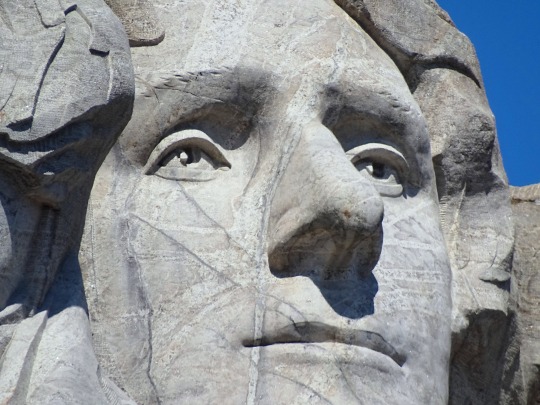
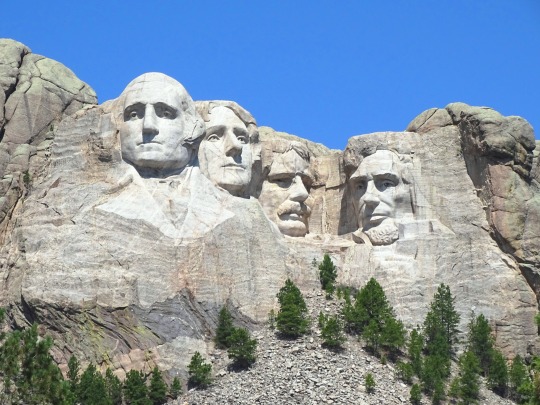
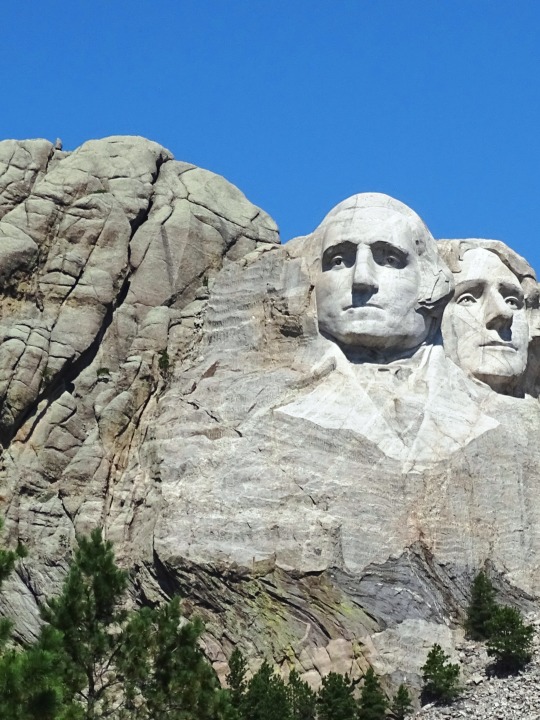
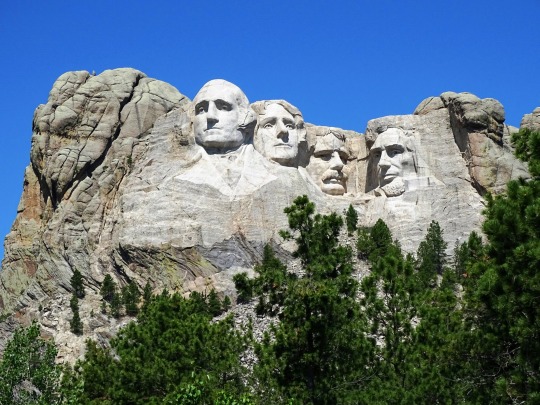
Thomas Jefferson Day
Thomas Jefferson, a founding father of the United States, was born on April 13, 1743. He held many roles and did much during the formative years of the country, including being the main author of the Declaration of Independence and the country’s third president. He wrote his own epitaph, highlighting what he most wanted to be remembered for: “HERE WAS BURIED THOMAS JEFFERSON AUTHOR OF THE DECLARATION OF AMERICAN INDEPENDENCE OF THE STATUTE OF VIRGINIA FOR RELIGIOUS FREEDOM AND FATHER OF THE UNIVERSITY OF VIRGINIA.”
Thomas Jefferson Day is a legal observance, but it is not a public holiday. A joint resolution approved on August 16, 1937, authorized the President of the United States to proclaim April 13 as “Thomas Jefferson’s Birthday” each year. The following year, President Franklin D. Roosevelt issued Presidential Proclamation 2276 to designate the day. Subsequent presidents have made similar proclamations. In Alabama, Thomas Jefferson’s birthday is officially celebrated on Presidents’ Day, along with George Washington’s.
Thomas Jefferson was born at the Shadwell plantation in Albemarle County, Virginia. His mother, Jane Randolph Jefferson, was from a prominent Virginia family, and his father, Peter Jefferson, was a planter and surveyor. After graduating from the College of William and Mary in 1762, he began studying law. As there weren’t official law schools at the time, Jefferson studied under a Virginia attorney. He began his work as a lawyer in 1767.
He married Martha Wayles Skelton on January 1, 1772. They had six children, but only two daughters lived to adulthood. Martha died in 1782 at the age of 33, and Jefferson never remarried. Besides keeping himself busy with politics throughout his life, he had many other interests, including gardening, architecture, music, and reading.
Jefferson was a member of colonial Virginia’s House of Burgesses between 1769 and 1775. He wrote “A Summary View of the Rights of British America” in 1774, which brought him to a wider audience. It said that the British Parliament didn’t have the right to use authority over the colonies. He was then selected to be a delegate to the Second Continental Congress. During this time, a panel of five was chosen to draft the Declaration of Independence. Of the five, which also included John Adams and Benjamin Franklin, Jefferson was chosen to write the draft. It was adopted on July 4, 1776.
In the fall of 1776, Jefferson resigned from the Continental Congress and was elected to the Virginia House of Delegates, which was formerly the House of Burgesses. In the late 1770s, he drafted the Virginia Statute for Religious Freedom. It was a notable forerunner to the First Amendment, and Jefferson thought it was one of his most substantial contributions, being important enough to include in his epitaph. After his time in the Virginia House of Delegates, he was Governor of Virginia from 1779 to 1781.
Following the Revolutionary War, Jefferson was part of Congress, which was known as the Congress of the Confederation at the time. He served from 1783 to 1784, and then became Minister to France in 1785, taking over the position that Benjamin Franklin had held. Because he was overseas, he was not able to attend the Constitutional Convention in 1787.
In the fall of 1789, Thomas Jefferson returned to America and became the first secretary of state. He helped found the Democratic-Republican Party, which opposed Alexander Hamilton’s Federalist Party, a party which wanted a strong central government with strong powers over the economy. Jefferson believed in a federal government with a limited role and believed in strong state and local governments.
He ran for president in 1796 and received the largest amount of votes after John Adams, so he became vice president. He ran against Adams again in 1800, and this time beat him. But his electoral vote count tied that of his running mate, Aaron Burr, and it was up to the House of Representatives to declare Jefferson as president. Because of this, the Twelfth Amendment, which stipulated separate voting for president and vice president, was ratified in 1804.
Jefferson served two terms as president and was in office from 1801 to 1809. During his first term, in 1803, he helped orchestrate the Louisiana Purchase, in which the size of the United States doubled with the purchase of land for $15 million from France. Jefferson sent Meriwether Lewis and William Clark on an expedition, known as the Corps of Discovery, to explore the new land. With this trip, information was gathered about geography, plant and animal life, and American Indian tribes. During his second term, which he secured with over 70% of the popular vote, Jefferson worked to keep the country out of the Napoleonic Wars. He implemented the Embargo of 1807 after merchant ships were getting harassed by France and Britain. It was an unpopular move, though, as it shut down American trade and hurt the economy; it was repealed in 1809. Jefferson did not run for a third term in 1808.
After his presidency, Jefferson retired to his home, Monticello. “Monticello” means “little mountain” in Italian. Indeed the home is located on a small mountain, on the edge of the Shadwell property where Jefferson was born. He had begun clearing the area for a home in 1768. He designed the home and gardens himself, and he continually worked on the house throughout his life. Art and gadgets filled the rooms, and he kept records of everything that went on at the plantation.
During his retirement years, he also helped found the University of Virginia. He helped design both its buildings and its curriculum. He also made sure it wasn’t a religious school and that there wasn’t a religious litmus test in order to attend it.
In 1815, he sold his 6,700 volume personal library to Congress, to replace the books that had been destroyed by the British in the War of 1812, when they burned the Capitol, which housed the Library of Congress at the time. Jefferson’s books became the foundation of what became the Library of Congress’s new library.
Although Jefferson is revered as one of the founding fathers, he is not a man without contradictions and shortcomings. He was a promoter of liberty and wrote “all men are created equal,” but was a slave owner throughout his whole life, during which he owned a total of about 600 slaves. He believed blacks were inferior humans and didn’t think coexistence would be possible if they were free. And although he never remarried after the loss of his beloved wife, Martha, he went on to father more children with one of his slaves, Sally Hemings. Some of the slaves that were in his bloodline were freed after his death, but most of his slaves were sold.
Thomas Jefferson passed away at Monticello at the age of 83, on July 4, 1826, on the 50th anniversary of the adoption of the Declaration of Independence. As if the date of his death wasn’t ironic enough, fellow founding father John Adams died on the same day. Thomas Jefferson died first, but Adams did not know that Jefferson had died, and his last words were “Thomas Jefferson survives.” Jefferson was buried at Monticello. Monticello was sold off following his death to pay debts, but a nonprofit organization acquired it in the twentieth century and it was opened to the public in 1954.
Source
#Thomas Jefferson Day#13 April 1743#anniversary#US history#born#birthday#Mount Rushmore National Memorial#controversial memorial#USA#controversy#Black Hills#South Dakota#Gutzon Borglum#summer 2019#original photography#tourist attraction#landmark#landscape#nature#NationalThomasJeffersonDay#Thomas Jefferson#US President#Teddy Roosevelt#Theodore Roosevelt#Abraham Lincoln#George Washington#North Central Region#Great Plains#travel#vacation
12 notes
·
View notes
Text
• Isabel Townsend Pell, American lesbian and resistant


Daughter of Isabel Audrey Townsend and estate administrator Samuel Osgood Pell, she shared her mother's first name and was born on September 28, 1900.
Isabel Pell tried to conform to what was expected of her by becoming engaged on June 3, 1924, but the engagement soon fell through as Isabel preferred women.
Then, because of her family's status as a wealthy heiress, she became very close to Eleonora Randolph Sears, a descendant of Thomas Jefferson and a tennis player, and Margarett Sargent.
War broke out and the German army occupied France. In 1940, Isabel Pell and her French companion Claire Charles-Roux decided to join the French Resistance and the maquis. They served for four years. In 1942, Isabel and her friend were arrested by the Italians and placed under house arrest in Puget-Théniers (first house on the right of the fortified gate). They were released when the Italians left in 1943, just before the arrival of German troops. Even under surveillance, Isabel Pell managed to act and pass on information to the Resistance during her walks.
When she was released, she disguised herself as a peasant and went into the mountains with her lover Claire Charles-Roux De Forbin La Barben. In 1944, Isabel rescues a contingent of American soldiers surrounded by enemies in Tanaron, a small French town. Pell, wearing a Free French badge, comes out of hiding to lead them to safety.
Back in Auribeau, she continued her resistance activities and joined the American army during the D-Day landings. She joined the 1st Airborne Task Force led by Major General Robert T. Frederick, ensuring communications between French and American forces.


#lgbt#lesbienne#lgbt photo#lgbtq#photografy#lesbian#old photograph lesbian#old lesbian#old phography#old lesbians#resistance#resistencia#world war 2#ww2#wlw community#wlw post
7 notes
·
View notes